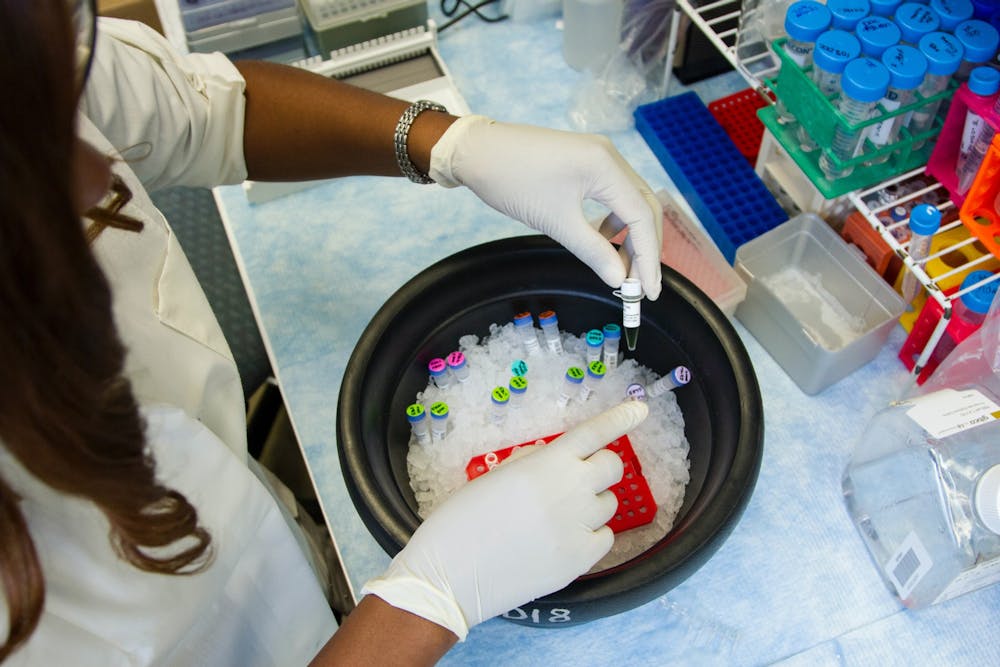The U.S. Bureau of Labor Statistics (BLS) reports that many healthcare careers are experiencing job growth that is significantly higher than the average job growth rate for all occupations. The high demand for skilled healthcare professionals may be one of the reasons you are considering a healthcare career. Healthcare workers earn strong salaries, and workers are often paid more or given employment incentives when their skills are in demand.
Although the job security and financial incentives may be reasons to consider entering the healthcare field, there are other factors you should consider before choosing this career path.
1. Your Temperament and Skills

Photo Courtesy of Scholarship Media
It’s common for people to be moody when they have a cold. People who need to receive ongoing medical care may be frustrated if they are hospitalized and do not have access to their home and family. These patients may also be scared. They may display antisocial behavior or be uncooperative when requiring care.
Healthcare professionals typically need to have compassion for their patients. It is essential that they are able to clearly communicate with the people they’re treating or testing. You may have difficulty effectively caring for patients if you lack patience and interpersonal skills. You will be less likely to experience job satisfaction if you do not have the right skill set for a healthcare career.
2. Ongoing Training Requirements
Healthcare professionals are in a field that requires ongoing education. It may be necessary to take courses about new diseases or breakthroughs in treatment procedures. You need to be willing to continue learning after you start your career if you are going to work in healthcare.
Nurses, paramedics, and many other healthcare workers are required to have their cardiopulmonary resuscitation (CPR) certification to work in their field. Medical professionals need to complete CPR recertification every 1 to 2 years. This ensures that healthcare workers are familiar with the latest techniques and guidelines for performing CPR. Some healthcare careers may also be required to take Basic Life Support (BLS) and Advanced Cardiac Life Support (ACLS) recertification.
3. The Range of Career Options

Photo Courtesy of Scholarship Media
There is a wide range of healthcare career options to choose from. You can opt to treat animals instead of people by working in veterinary medicine. You can also focus on performing diagnostic tests instead of treating patients if you pursue a career as a radiologic technologist. Clinical lab technologists may spend most of their time processing samples in a lab and have minimal or no contact with patients.
Community and social service careers can overlap with healthcare. Social workers may specialize in healthcare and work in hospitals. They may also focus on mental health and be part of a treatment team in residential mental health centers for teenagers or provide mental health care for adults. These professionals specialize in treating patients with mental health disorders, including bipolar or anxiety disorders.
4. Lifestyle Compatibility

Photo Courtesy of Scholarship Media
Many healthcare professions require the ability to work outside of a typical 9 to 5 schedule. It is common for nurses, doctors, paramedics, and other healthcare workers to have positions that involve shift work. This means that you may not have consistent days off each week and may have to alternate between day and night shifts.
A healthcare career can also involve overtime. A paramedic who takes a call near the end of their shift will not clock out and leave a patient they are in the middle of treating. Medical emergencies can arise that may require healthcare workers to stay on sight and continue working. This is one of the reasons why healthcare workers need to be flexible and have a high level of commitment to their careers.
5. Your Mental Health

Photo Courtesy of Scholarship Media
Working in healthcare is stressful. It is common for healthcare workers to face life and death decisions in the course of their duties. They may feel overwhelmed by the need to make critical choices that can significantly impact the well-being of their patients.
Many healthcare workers will also have patients who die. These patients may have serious injuries or a deadly disease that can’t be effectively treated. Healthcare workers may experience grief and emotional distress over the loss of patients. They may also be frustrated by shortcomings in the medical field that they feel prevent them from providing optimal care. It is important to know that you have the emotional strength required to enter a healthcare profession because of the unique challenges healthcare workers face every day.





